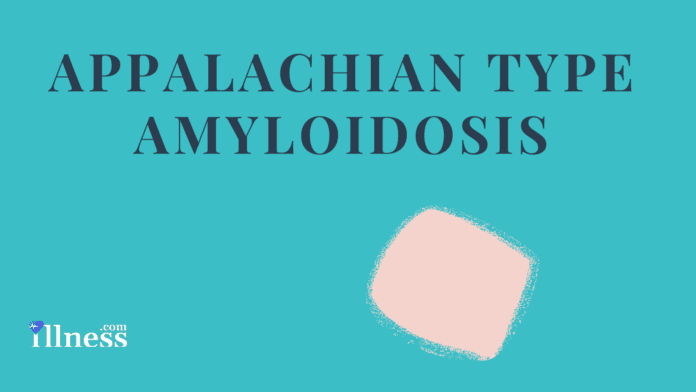Overview
Cardiac amyloidosis is a heart disorder resulting from abnormal protein deposits (amyloid) within the heart tissue itself. The heart struggles to function properly because of these deposits.
Commonly Associated With
Primary cardiac amyloidosis – AL type, Stiff heart syndrome, Isoleucine 33 amyloidosis, Secondary cardiac amyloidosis – AA type, and Senile amyloidosis
Cause Of Cardiac Amyloidosis
Amyloidosis is a general term that refers to a large group of diseases, all of which characterized by clumps of proteins called amyloid. These proteins then build up in various body tissues. Over time, these amyloids can replace normal functioning tissue, which in severe cases leads to the failure of the invaded organ. Many different forms and types of amyloidosis exist.
Cardiac amyloidosis (also called “stiff heart syndrome”) is a form that occurs when amyloid protein deposits invade the heart muscle. It’s the most common form of restrictive cardiomyopathy.
Cardiac amyloidosis can negatively affect the electrical conduction system of the heart, which means the signals don’t travel through the heart the way they’re supposed to. This conduction interference may lead to arrhythmias (the heart beats in abnormal patterns) or heart block, in which the electrical signals of the heart become faulty in some way.
In some cases, this condition is inheritable. When this happens, it’s called familial cardiac amyloidosis.
Cardiac amyloidosis may also develop due to other diseases or medical conditions. For example, some types of blood and bone cancer can cause the condition. Also, medical problems that result in chronic inflammation can also be associated with the condition.
Cardiac amyloidosis is more commonly seen in men than women, and is rare in those under the age of 40.
Symptoms Of Cardiac Amyloidosis
Some may experience no symptoms at all.
If symptoms are present, they can include:
- Difficulty breathing when lying flat on their back
- Swelling of the legs, ankles, abdomen, or other areas of the body
- Feelings of fatigue and a reduced ability to exercise
- Shortness of breath with activity or exercise
- High or excessive levels of urination at night
- Heart palpitations
Exams & Tests For Cardiac Amyloidosis
Diagnostic signs for cardiac amyloidosis may also be present for a number of other medical conditions, which can make the condition difficult to diagnose.
Signs to look for when diagnosing can include:
- Low blood pressure, or the person’s blood pressure drops when they stand up
- A swollen liver
- Abnormal lung sounds (such as lung crackles)
- A heart murmur
- Enlarged neck veins
The following diagnostic tests exist:
- A chest or abdominal CT scan. This test is often considered the “gold standard” diagnosis tool for this condition
- An electrocardiogram (ECG)
- An ECG could reveal problems with the heart signals or how the heart beats. It may also reveal low voltage in the heart, which means the electrical signals are too small
- A positron emission tomography (PET)
- A coronary angiography
- A cardiac biopsy will then confirm the diagnosis. Providers may also perform biopsies of other areas, such as the kidneys, bone marrow, or abdomen
- Magnetic resonance imaging (MRI)
- Nuclear heart scans (MUGA or RNV)
- An echocardiogram
Treatment Of Cardiac Amyloidosis
A health care provider may recommend diet changes, including limiting fluids and salt whenever possible.
Some people with the condition may need to take diuretics (water pills) to help rid the body of excess fluids. Some providers may recommend the patient weigh themselves daily – this keeps track of fluid retention. For example, a weight gain of 3 or more pounds over the course of 1-2 days would be a bad sign, indicating that there’s too much fluid in the person’s body.
For those with atrial fibrillation, medications such as beta-blockers, digoxin, and calcium-channel blockers can help. However, these medications must be taken with caution, and they need to watch dosage carefully. Those with cardiac amyloidosis can be unusually sensitive to the side effects of these medications in some cases.
Other possible treatments can include:
- Prednisone, an anti-inflammatory medication
- An implantable cardioverter-defibrillator (AICD)
- A pacemaker, if issues with electrical heart signals are present
- Chemotherapy
Those with very poor heart function may need to have a heart transplant.
Those with hereditary amyloidosis may require a liver transplant at some point in their lives.



